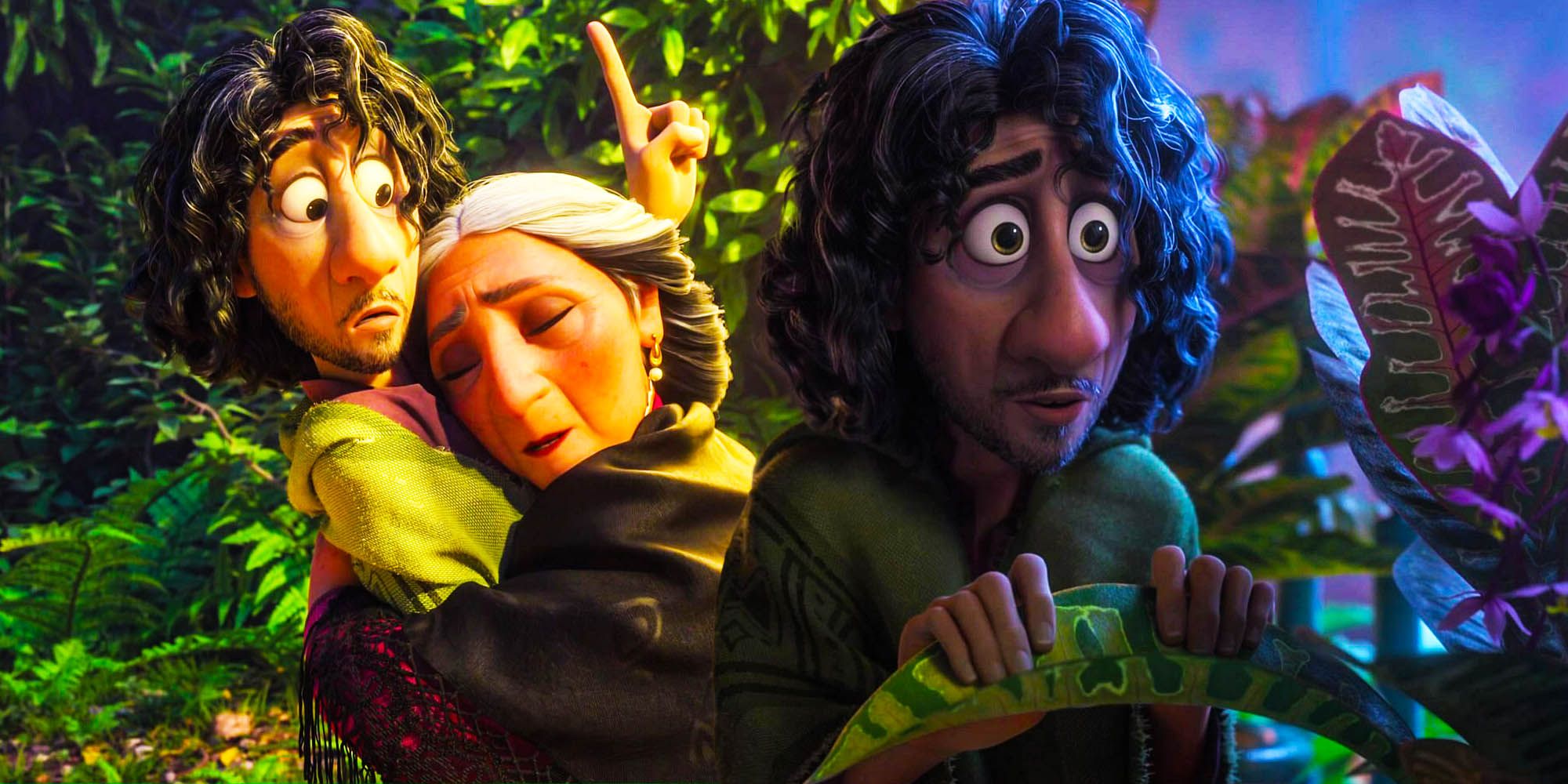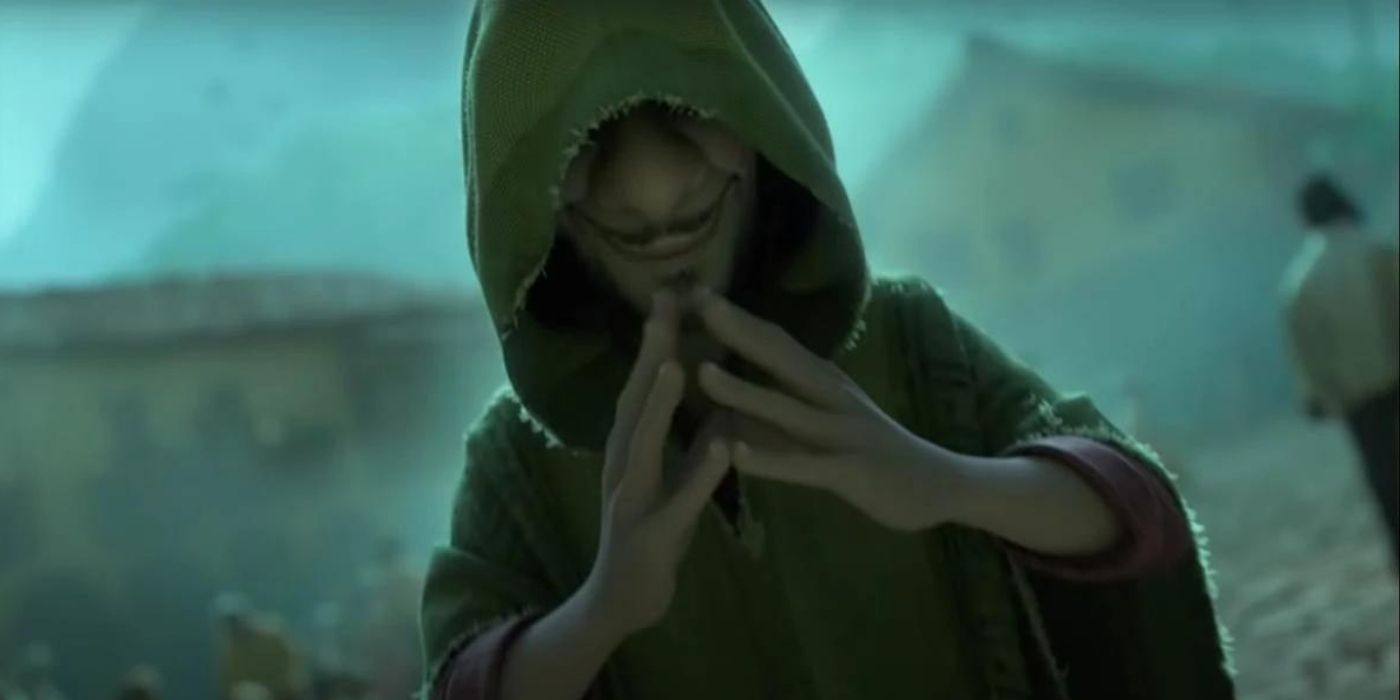Had the creators of Encanto pursued their original plans for Bruno Madrigal, the Disney movie would have been affected negatively. Encanto's directors Jared Bush and Byron Howard revealed that a significant part of the film’s story was conceived differently. However, because they decided to reevaluate Encanto's plot and characters — especially Bruno, voiced by John Leguizamo — they managed to create a critically acclaimed musical.
Originally, Bruno was called Oscar in previous versions of Encanto, a nod at how different the character was supposed to be. Howard shared the stages Bruno’s character development went through, starting with his age. Instead of the thirty-year difference shown between Mirabel (Stephanie Beatriz) and her estranged uncle, at one point, the two were closer in age. Because of that, Encanto almost became a buddy movie starring the two Madrigals. But, as the film’s directors fleshed out the characters’ powers, they realized that Bruno’s clairvoyance could make him an outcast from his family and the community. This consequence of Bruno’s powers eventually became the premise of the hit Lin-Manuel Miranda song "We Don’t Talk About Bruno."
When Encanto was released theatrically, it underperformed, and it only garnered wider success upon its Disney+ streaming release. A part of this sleeper hit triumph is the crowd-favorite “We Don’t Talk About Bruno,” which took households by storm, broke and set music records, sparked curiosity among viewers, and started online interactions with fans. So, if Encanto’s directors pushed through with the original version of Bruno shared in an interview (via Empire), the film would not have been as impactful as it was. After all, without Bruno, Encanto would be robbed of its best song, and although the film’s soundtrack was well-received in general, it was Bruno’s story that truly captured the hearts of its audience.
Moreover, if Bruno was not written as a powerful yet estranged Madrigal, the film would not have had a compelling twist. As Encanto fixed the Disney villain cliché, Bruno was only used as a red herring in the first half. He was initially depicted as crazy and nefarious, but that could not be further from the truth. Putting his family first, Bruno only chose to leave in order to protect Mirabel from being ostracized because of his vision and the Madrigals from being torn apart by the destruction of their magic. It was later revealed that because he truly loved his family, he never actually left them, and he tried to stay as close to them as possible, even though the Madrigals continued living their lives without him for a decade. If Bruno was created as a teenager like Mirabel, this plot twist would not have worked because the circumstances would have been different. Surely, there would have been no need for him to be shunned, and he and Mirabel would have probably been busy solving the mystery of Encanto’s magical house. Thus, the film’s theme of generational trauma would not have been addressed properly.
Furthermore, Bruno’s absence from the final version of Encanto would have dampened the reveal of Abuela’s backstory. Abuela’s tragic past was instrumental in her being rigid and determined to preserve the family’s magic whatever it took. Seeing how Abuela raising her children and grandchildren directly affected Bruno made Encanto's story more poignant, as there was a living testament to all the pain and suffering brought by prioritizing their powers. If Bruno was written differently or even out of the picture, Encanto’s core would not have been as emotional and moving, losing its appeal and relatability with its audience.


